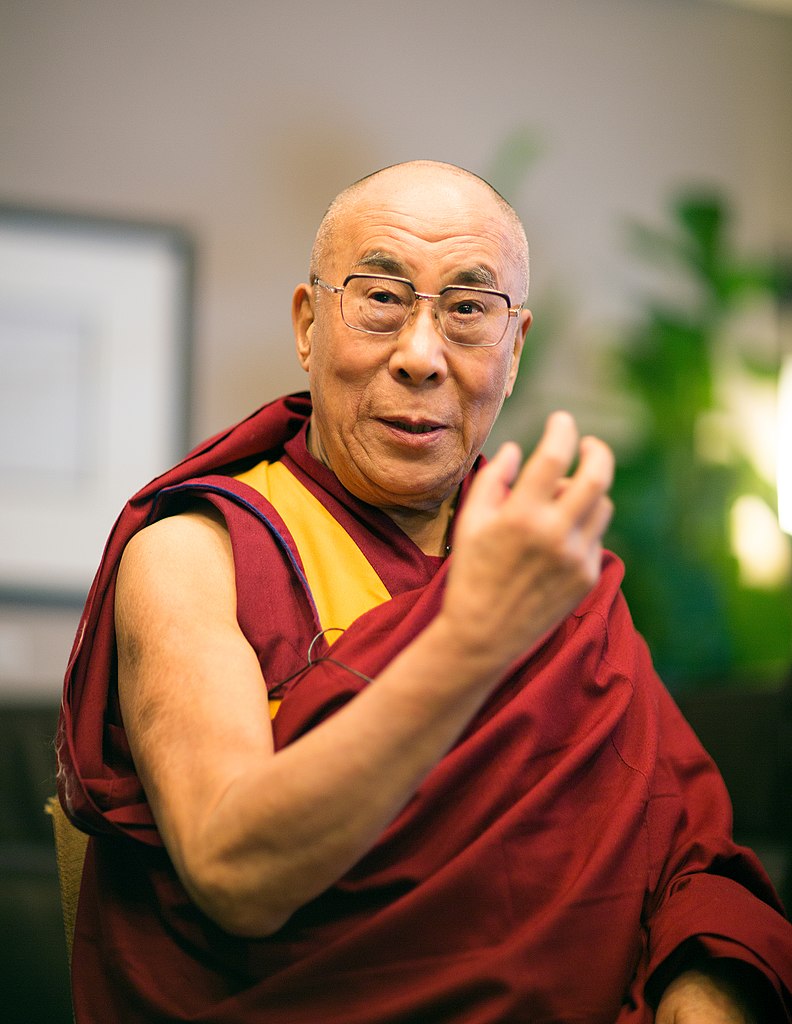His Holiness, the Dalai Lama, posted the following on Facebook yesterday:
“Like anyone else, I too have anger in me. However, I try to recall that anger is a destructive emotion. I remind myself that scientists now say that anger is bad for our health; it eats into our immune system. So, anger destroys our peace of mind and our physical health. We shouldn’t welcome it or think of it as natural or as a friend.”
This post has gone viral and has elicited thousands of comments and shares.
What exactly is the Dalai Lama telling us? To stop being human?
My jaw tightened as I read his post. Which group of scientists are saying that anger is bad for our health? More importantly, in what context? (Check out a few articles on the detrimental effects of anger on our health and well-being here and here and here. ~ Ed)
Let’s unwrap anger for a moment. It is a complex emotion that has various levels of intensity. It can range from feelings of slight annoyance, edginess, irritation, aggravation, or feeling disgruntled. It can grow into frustration, irritation, and impatience. Finally, at the red line, we can feel furious, outraged, hostile, and irate. When these emotions are not felt and processed, but suppressed instead, they fester and morph into bitterness and resentment. Bitterness and resentment that lead to health and mental issues.
I’m not sure how to process His Holiness’ statement. Any psychologist, psychiatrist, or therapist who is educated in the field of emotions would never say to their client: “Anger is bad. Under all circumstances and under all conditions, whatever you do, avoid feeling your anger because it will make you sick. The Dalai Lama teaches it, so it must be true.”
I beg to differ. Anger is a natural emotion, like joy and happiness is natural. Would the Dalai Lama instruct a two-year-old moving through a temper tantrum to put a cap on their anger and rage? Doing this would create a generation of adults who are not able to access any of their emotions. We may as well be raising automatons.
When allowed to move through their anger and with the guidance of a loving caregiver who is knowledgeable in holding space for their child’s emotions, children learn that expressing feelings of anger makes way for the expression of the quieter emotions that live beneath. They learn that anger does not have to lead to violence or destruction. It can be felt, processed, and used as energy for change.
Emotions are meant to flow. Imagine a tap and a sink with a blocked drain. You stopped the flow because you were afraid the water would overflow and cause damage. Now imagine all your emotions—joy, sadness, love, grief, anger, courage, fear, guilt, shame—all using the same tap from which to flow in your body. When you shut the tap off to suppress the emotion of anger, you shut off the flow for all the other emotions as well. What remains? Numbness.
As a child, I was discouraged from expressing anger. I am only now, at the age of 54, learning the importance of this undervalued emotion. Anger expressed in a healthy way is teaching me to have my own back; it shows me when boundaries are crossed, and gives me the courage to self-advocate.
Without the emotion of anger pointing to injustice, would slavery have been abolished? Would women be able to vote? What about MADD (Mothers Against Drunk Drivers)? These women no doubt felt anger for having lost their loved ones to drunk drivers, but instead of stewing in blame, bitterness, and resentment, they used their anger as fuel to affect change.
Anger is not an ogre. Anger is a messenger “Look here! It says. Look where there is a hurt, an injustice, or a wrong.”
I am learning to move through anger without lashing out at myself or others. I don’t always succeed. When I catch myself lashing out, I immediately make amends. I ask myself what other emotion wants an audience with me. It is usually my inner little girl who is finally speaking out for herself and now feels safe enough to do so.
I admit, sitting with anger without it coming out sideways is uncomfortable. It takes the ability to breathe through it, to move from my head, and notice the sensations in my body. It is a slow process requiring focused awareness with the intention of creating new neuropathways of behavior. It is hard, not impossible.
Ironically, I am moving through some feelings of anger and frustration with the Dalai Lama at this point of my writing. I think—and this is a lowly opinion of a mere mortal—that his advice, especially considering he has over 15 million souls following his teachings on Facebook, should be rooted in meaningful research.
Rumi got it right when in the 13th century he guided us to:
…Welcome and entertain them all [emotions]!
Even if they’re a crowd of sorrows,
who violently sweep your house
empty of its furniture,
still treat each guest honorably.
He may be clearing you out
for some new delight…
Be grateful for whoever comes,
because each has been sent
as a guide from beyond.
As much as I respect the teachings of his High Holiness, the Dalai Lama, I must disagree with this latest lesson. Instead of suppressing our anger and calling it bad, let’s practice curiosity around it, communicate with it, ask what it wants us to know.
Anger is a natural emotion. We all experience it. To deny it in ourselves would be to deny a piece of our humanness.
~







Read 18 comments and reply